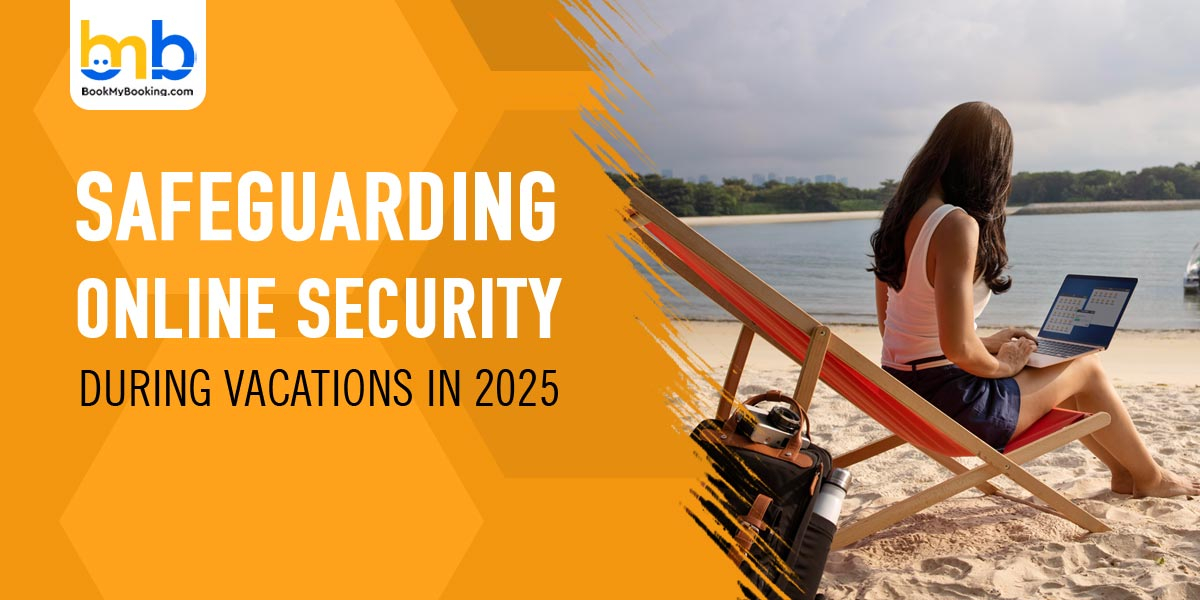In this increasingly connected world, travel relies more on technology than ever. While digital tools enhance convenience, they also create new opportunities for cyber threats. Therefore, having all the necessary information regarding Cyber safety while travelling is vital to safeguard your data and information.
Fraud attacks and malicious links targeting mobile devices are depicted to triple compared to previous years as cybercriminals exploit public WiFi networks and insecure booking platforms. Protecting personal information while travelling and your digital footprint is essential to navigate these challenges.
This article will highlight the risks travellers face and offer actionable strategies to protect their passwords and data, ensuring a safe and stress-free journey ahead.
To ensure cyber safety while travelling, you must take a few cybersecurity steps beforehand, such as only packing the necessary devices, backing up your data, and securing your accounts with strong passwords. There are also a few digital safety tips for travellers you should follow. At the same time, when travelling, you must be cautious of how much you share on social media, not use public WiFi networks, and ensure your devices are always kept in a secure location.
Please continue reading to learn more in this Travel Cybersecurity Guide for 2025, which provides tips for staying safe online before and during your next big trip and explains why it is essential.
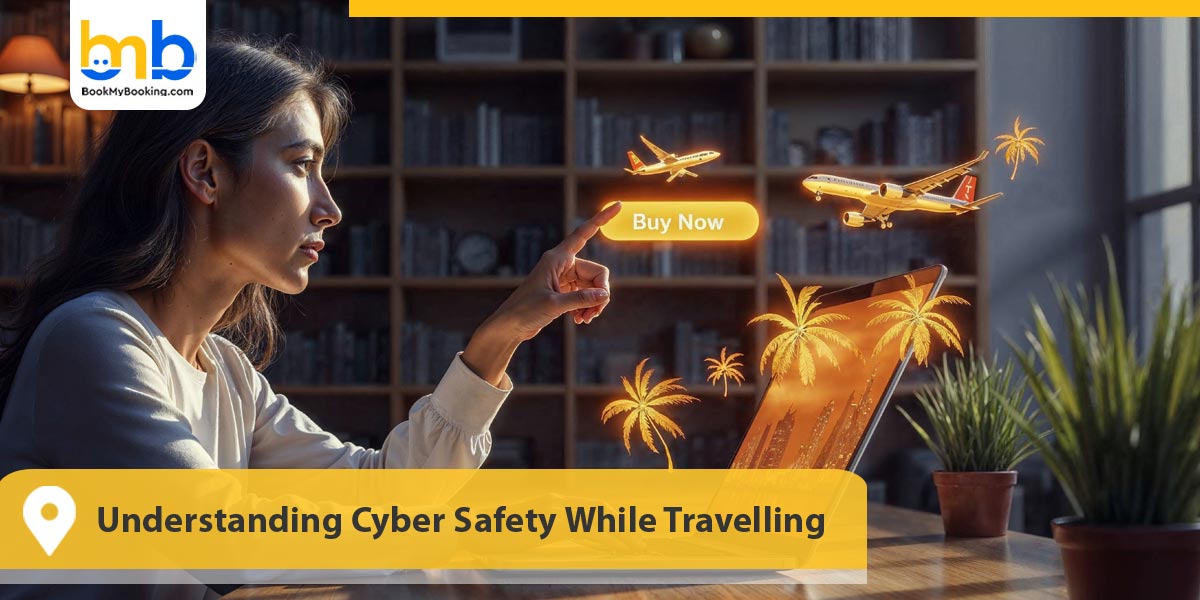
Understanding Cyber Safety While Travelling
Online security during vacations is about protecting your digital information while travelling. It safeguards your devices, data, and online tasks from possible threats. These threats may range from identity theft to cyberattacks. They can come from unsecured WiFi networks, phishing scams, or even physical theft of your devices. Therefore, travel safety for families and groups becomes essential. Follow the steps below in this Travel Cybersecurity Guide for 2025, and we will ensure that you and your data are safe.
Understanding these risks is the first step towards secure online travel. The FBI received 880,418 cybercrime complaints in 2023, a 10% increase from the previous year, highlighting the need for online safe travel practices in 2025.
The Importance of Safe Travel Practices 2025
Travelling is always something to look forward to, but it can come with obstacles like putting your online data at risk. Taking online security during vacations before and while travelling is essential because things that compromise your sensitive data can happen on your trip.
One circumstance far too common is losing or stealing your phone while travelling. According to Zawya, a trusted source for regional business and information across the UAE and Egypt, around 20% of Americans have lost their phones while travelling abroad. Thus, internet safety for solo travellers becomes essential. Phones contain large amounts of sensitive data, so losing your phone or having it stolen puts the stored data at risk of being lost forever. In some cases, a lost or stolen phone can lead to your identity being stolen; therefore, having cyber hygiene during travel is essential.
Why Are Travellers the Main Targets of Cyber Threats
As travellers learn more heavily on mobile apps, online bookings, and cloud-based itineraries, the risks of data breaches, identity theft, and account compromise will grow significantly. Yet reports suggest solutions that leave their personal information at risk. Understanding these vulnerabilities is the first step toward online security during vacations.
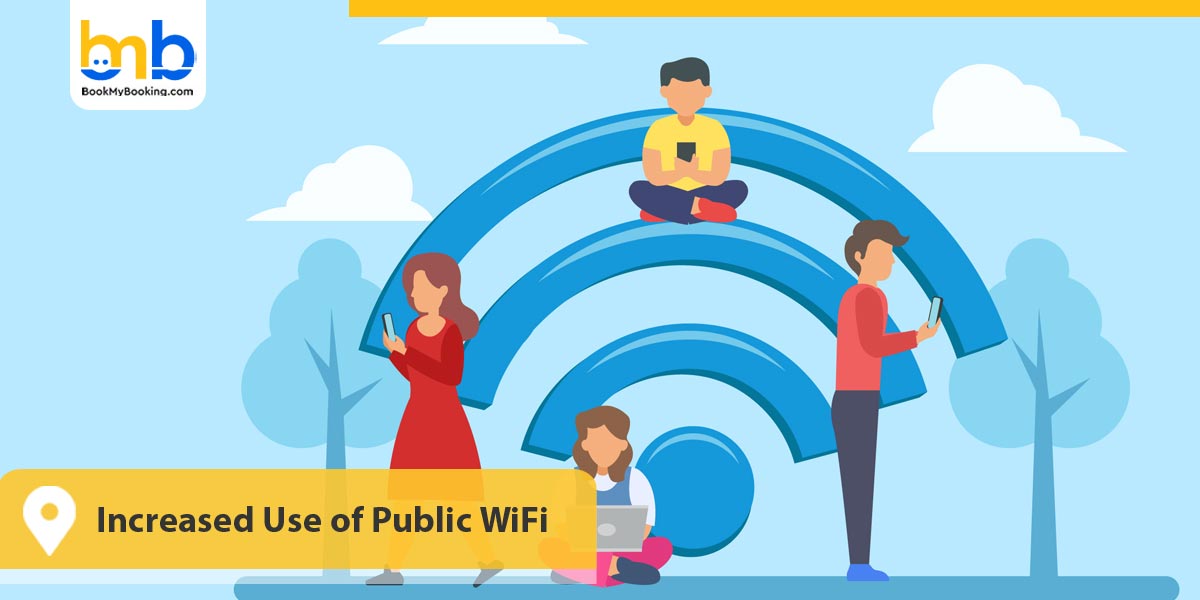
- Increased Use of Public WiFi
Travellers continue to face challenges when using public WiFi. While it offers convenience at airports, hotels, and cafes, these unsecured networks are a hotbed for cyber threats. Hackers can easily launch man-in-the-middle attacks, intercepting data transmitted over open networks. Therefore, Travel Tech Safety Tips of 2025. This means sensitive information such as passwords and credit card details can be stolen quickly. Additionally, travellers may unknowingly connect to fake WiFi networks, known as 'honeypots, ' set up specifically to capture their data.
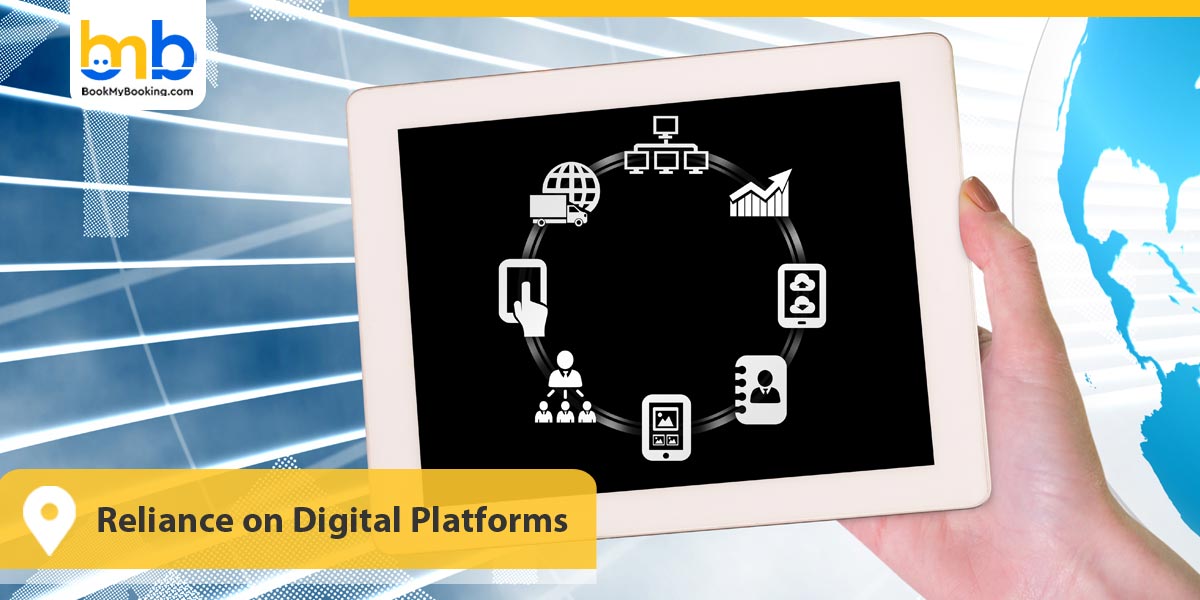
- Reliance on Digital Platforms
Safe Travel practices in 2025 will heavily depend on digital tools for bookings, navigation, and payments. Mobile apps, cloud storage, and online platforms streamline trip planning and expand cybercriminals' attack surface. Every app or platform travellers use becomes a potential entry point for hackers. A compromised account can give attackers access to travel itineraries, payment methods, and personal identification details. Therefore, Cyber safety while travelling is of utmost importance.

- Phishing and Fake Booking Scams
As the travel industry digitises further, phishing attacks are becoming increasingly sophisticated. Travellers are often targeted with fraudulent emails, texts, or ads that mimic legitimate booking platforms. Clicking these links can lead to fake hotel booking sites with malware that steals credit card information or devices. Thus, following safe travel practices in 2025 is essential. In many cases, travellers don't realise they have been scammed until it's too late, whether their trip is ruined or their financial data is compromised.
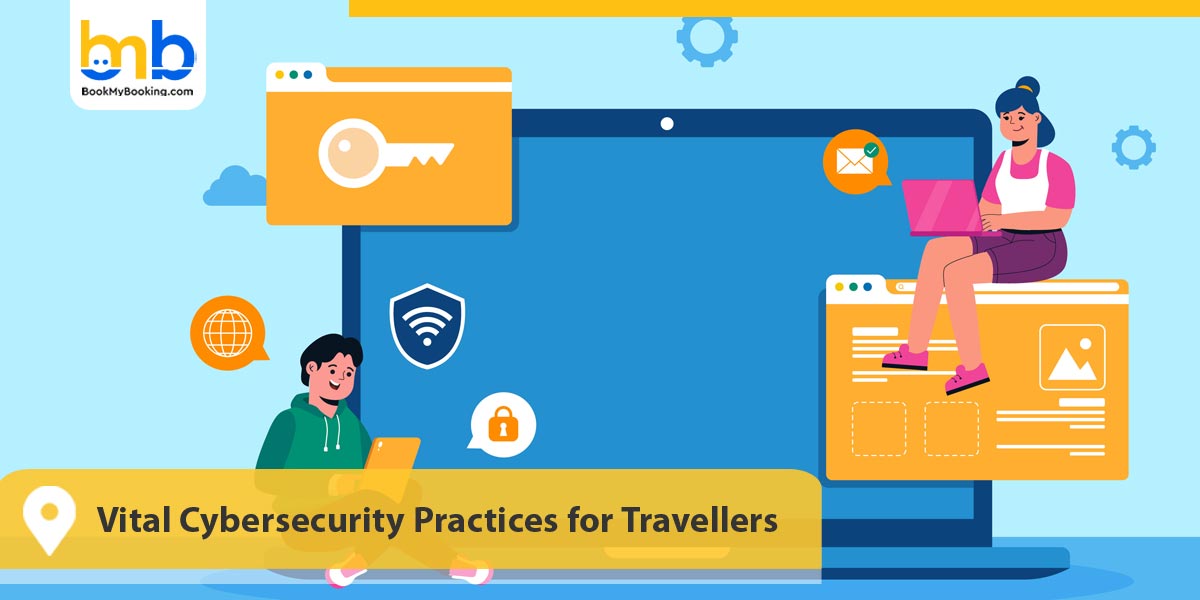
Vital Cybersecurity Practices for Travellers
Staying connected during travel has become a standard safe travel practice in 2025. It also exposes you to potential cyber risks. Following a few key cybersecurity practices, you can safeguard your personal information and browse securely wherever your journey takes you. Here are the most effective Digital Safety tips for travellers for preserving your digital footprint:
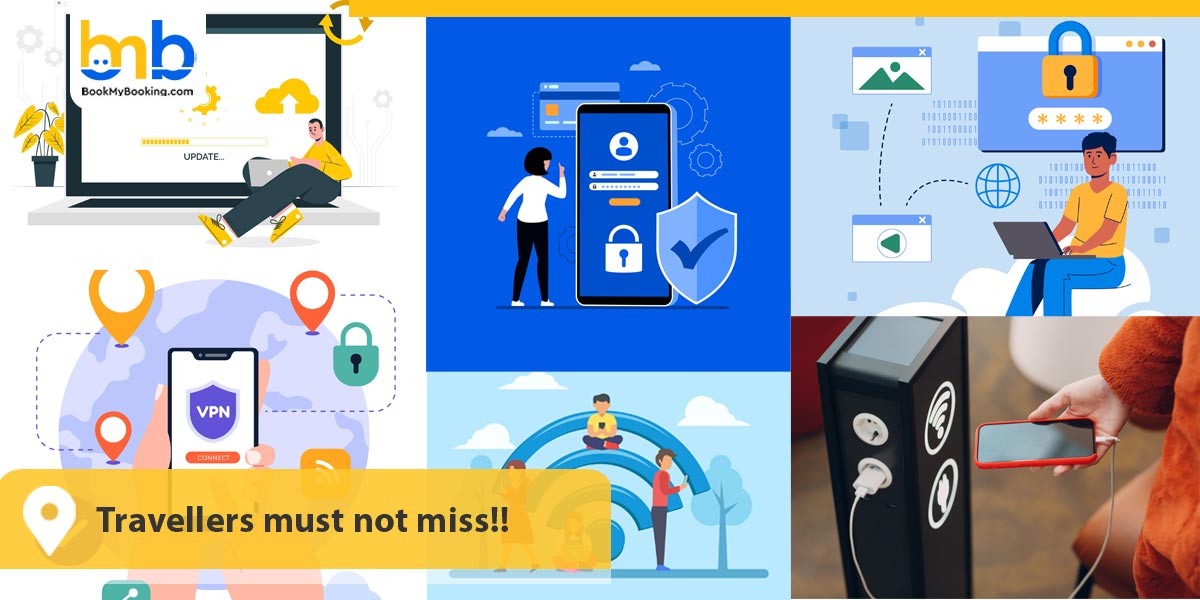
- Use a VPN
A Virtual Private Network (VPN) is one of the most effective tools for securing your internet connection while travelling. VPNS encrypt your online activity, preventing hackers from intercepting sensitive information like passwords or payment details, even on public WiFi networks. This is a must-include in your travel tech safety tips in 2025. Famous options like NordVPN, ExpressVPN, and CyberGhost offer global servers, ensuring reliable and secure connectivity wherever you are.
- Strengthening Your Passwords
Strong, unique passwords are your first line of defence against cyber threats. They make it harder for hackers to access your accounts, so consider using a password manager to ensure travel safety for families and groups. It can generate and store complex passwords for you, reducing the risk of easy hacks due to weak passwords.
- Enable Two Factor Authentication (2FA)
Securing your accounts with two-factor authentication adds extra protection against unauthorised access, ensuring online safety for solo travellers. By needing a secure verification form, such as a one-time code sent to your phone, 2FA ensures that your accounts remain safe even if your password is compromised. Enable 2FA for critical services like email, banking, and travel apps.
- Keep Devices Updated
Outdated software often contains vulnerabilities that hackers can exploit. Therefore, it is vital to follow travel digital safety tips. Before travelling, ensure your devices are running the latest updates, including operating systems, browsers, and security software. Regular updates provide critical patches that protect against known threats.
- Secure Hotel Internet Usage
Hotels often provide free internet, but their networks can vary regarding online security during vacations. Confirm whether the hotel offers a password-protected WiFi network and inquire about cybersecurity measures. For added security, consider staying at hotels with strong digital protections, prioritising secure internet connections.
- Avoid Public Charging Stations
Public USB charging stations may seem convenient, but they come with risks. Thus, travellers should follow digital safety tips. Hackers can install malware or steal data from connected devices, a tactic known as ‘juice jacking’. Instead, plug your charging cable directly into a power outlet or use a portable power bank.
- Backing Up Your Data
Backing up your data and information is crucial for families and groups' pre-travel safety. This would allow you to recover data and information from lost or stolen devices. Consider using cloud services for your backups. This will enable you to access your data from anywhere, providing extra convenience and cyber safety while travelling.
- Secure Connectivity on the Go
When travelling, you may often rely on public WiFi networks. While convenient, these networks can pose significant security risks. Public WiFi networks are usually unsecured, making it easy for cybercriminals to intercept your data. Therefore, following travel digital safety tips is crucial to secure your connection. One effective way to do this is using a Virtual Private Network (VPN). A VPN encrypts your data, making it much harder for anyone to intercept and read.
- The Risk of Public WiFi
Public WiFi networks can be a hotbed for cybercriminal activity. They often lack proper online security measures during vacation, making it easy for hackers to intercept your data. Always be cautious when using public WiFi. Avoid conducting sensitive activities such as online banking or accessing personal accounts on these networks, and follow safe travel practices in 2025.
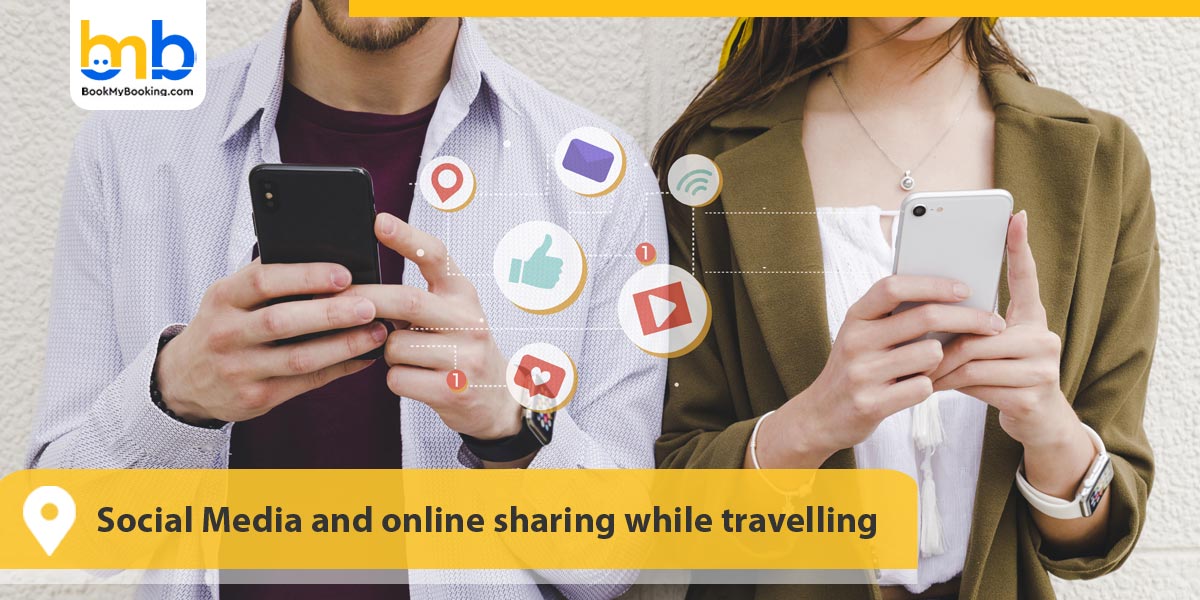
Social Media and online sharing while travelling
Social media is a great way to share your travel experiences. However, it can also expose you to potential security risks. Sharing too much information about your location and activities can make you a target for cybercriminals. Be mindful of travel digital safety tips, what you share, and who can see it is essential. Consider adjusting your privacy settings to limit who can see your posts. Also, avoid sharing sensitive information, such as your hotel location or travel industry.
Managing Your Digital Footprint
Your digital footprint is the trail of data you leave behind when using the Internet. Therefore, following safe travel practices in 2025 is essential. This includes social media posts, online purchases, and your search history. Ensure you know who sees your content to prevent potential risks and dangers.
Scams and phishing attempts are prevalent online threats.
They can be particularly dangerous for cyber safety while travelling and relying heavily on your device. Always double-check the source of any suspicious emails or messages. Avoid clicking on links or downloading attachments from unknown sources.
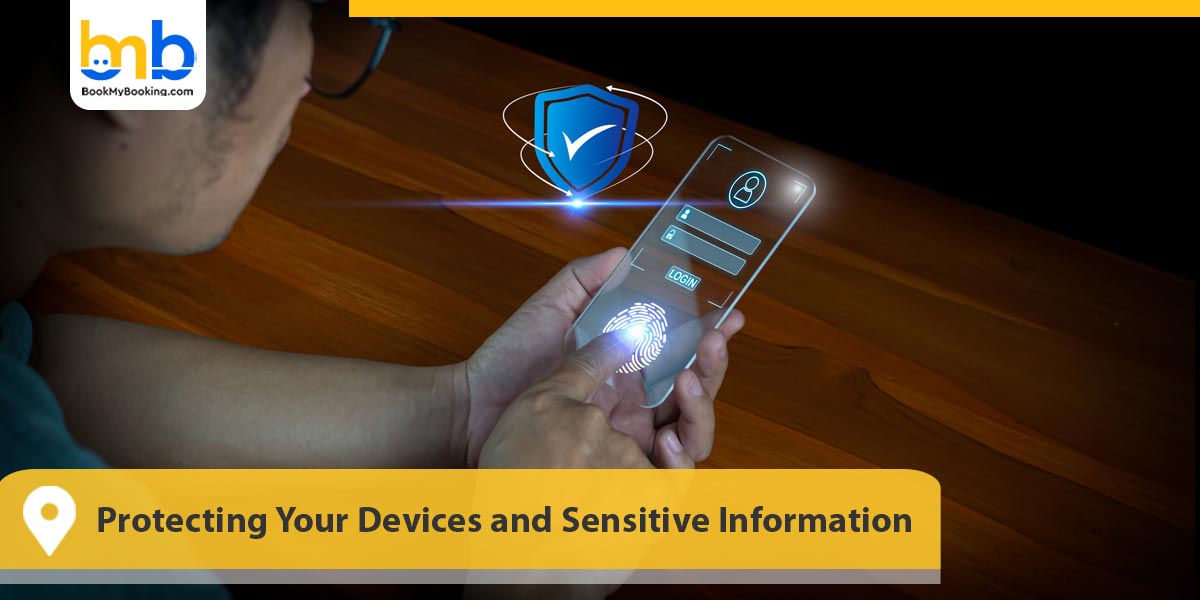
Protecting Your Devices and Sensitive Information
When travelling, your devices are your lifeline. They hold your tickets, maps, and essential contacts; protecting them is crucial. Online security during vacations is just as important as physical security. Always keep your devices with you or in a secure location. Use strong and unique passwords, as we mentioned before. Enable two-factor authentication whenever possible, which must be included in your Travel Tech Safety Tips in 2025. This adds an extra layer of security to your accounts. Use a travel-specific lock to ensure your devices aren't vulnerable.
MICE Travel Online Safety
MICE Safety Travel Protocol refers to a set of precautionary measures and guidelines curated to ensure participants' and organisers' health, safety, and digital security in Meetings, Incentives, Conferences, and Exhibitions (MICE) tourism. These MICE travel data protection protocols are essential as MICE events often involve large groups, international travel, valuable corporate data, and logistics.
Your devices can be vulnerable to theft or loss while travelling, so always keep them in sight and secure. Consider using a privacy screen on your devices and diligently following the MICE travel online safety protocols mentioned in this article. This can prevent others from seeing sensitive information on your screen. Use a TSA-accepted lock to travel through airports while keeping your device secure easily.
After Your Trip: Maintaining Online Security
Your online security during vacations should still be a priority when your trip is over. Continue to monitor your accounts for any suspicious or malicious activity. Remember to log out of any accounts you accessed while travelling. Also, consider changing your passwords, especially if you need public WiFi or other unsecured networks.
Choosing Cybersecure Accommodations
Your choice of accommodations can significantly impact your online security during vacations while travelling. Hotels are evolving to address digital risks, but knowing what to look for and what questions to ask can help ensure your stay is comfortable and secure.
How Hotels Are Improving Cybersecurity
Many hotels now prioritise guest privacy and data protection through advanced measures. Encrypted WiFi networks have become a standard for safeguarding cyber safety while travelling and online, ensuring that only authorised users can access the network. Some properties also offer personalised WiFi logins, which generate unique credentials for each guest to prevent unauthorised sharing.
Keyless room access using secure mobile apps also reduces risks associated with lost or stolen physical keys, ensuring travel security for business trips. Privacy-compliant booking platforms protect sensitive information during reservations by following data protection regulations like GDPR. High-end hotels also implement firewall systems and network monitoring to block real-time cyber threats.
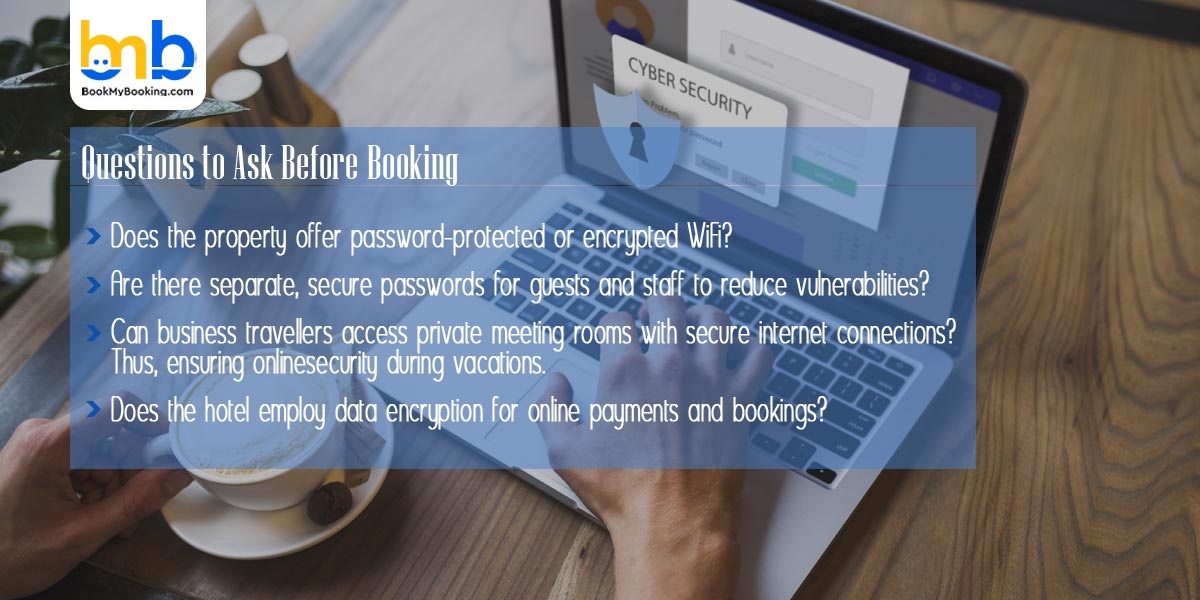
Ways for Extra Security
Even if your chosen hotel lacks some of these measures, you can enhance your security, as mentioned in our Travel Cybersecurity Guide for 2025. Use a VPN to encrypt your connection, avoid accessing sensitive accounts over public networks, and turn off auto-connect features on your devices to prevent accidental connections to unsecured networks, ensuring online security during vacations. For business trips, consider hotels specialising in corporate accommodations with enhanced privacy controls.
- Emerging Cybersecurity Trends for Travellers
The travel industry constantly innovates to enhance guest experiences and protect personal data. In 2025, cutting-edge cybersecurity technologies, standards, and digital safety tips for travellers are reshaping how travellers stay safe and secure.
- Biometric Authentication
Biometric security is becoming a hallmark of modern travel. Hotels and airlines increasingly use footprint scans, facial recognition, and voice authentication to streamline processes and reduce security risks to ensure online safety for solo travellers. From bypassing traditional check-ins at hotels to expedited boarding at airports, biometrics offer both convenience and a heightened layer of protection. By eliminating the need for passwords and PINS, these systems prominently lower the chances of unauthorised access.
- Encrypted Payment Systems
With cybercriminals targeting online transactions, encrypted payment systems are now essential for secure travel, as mentioned in our Safe Travel Practices 2025. Many hotels and airlines use end-to-end encryption for credit card processing, ensuring that payment data cannot be intercepted during transactions. Digital wallets such as Apple Pay and Google Wallet further enhance security by generating unique transaction-specific codes that protect card details.
- Cybersecurity Certifications for Accommodations
Travellers increasingly seek certifications demonstrating strong cybersafety measures while travelling, such as GDPR compliance in Europe or PCI DSS for payment data protection. Hotels with these certifications adhere to rigorous standards for data handling and network security, offering guests greater peace of mind when booking. Look for properties highlighting these certifications to ensure their commitment to safeguarding your personal information and travel safety for families and groups.
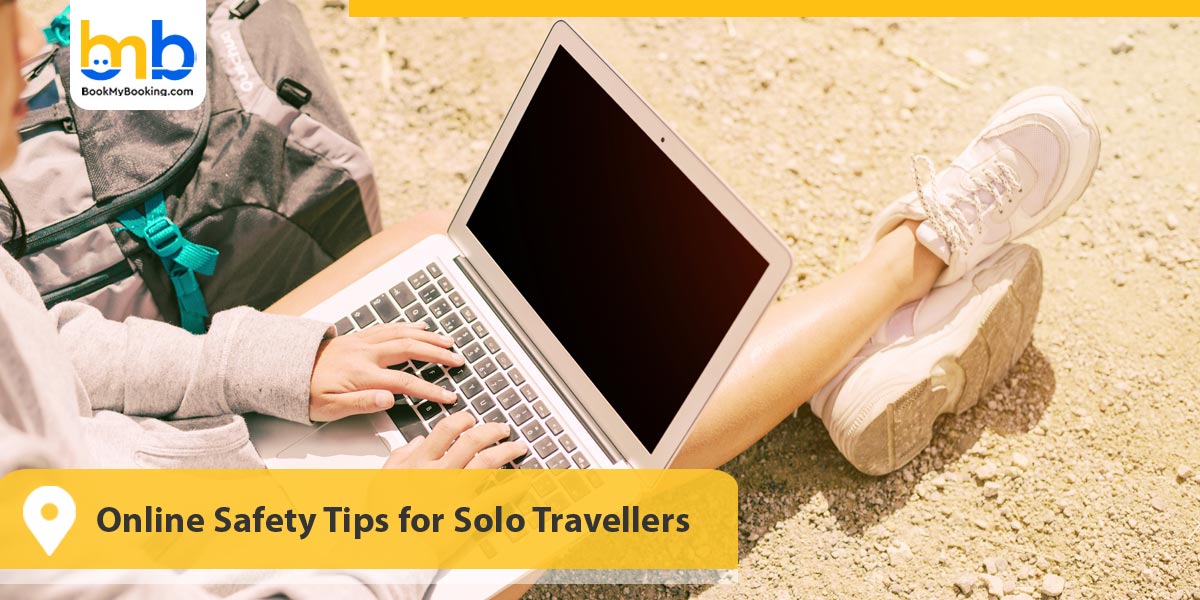
Online Safety Tips for Solo Travellers
- Keep Social Media Posts Delayed
Share your travel memories after you have left a location to avoid being tracked in real time—one of the most essential travel digital safety tips.
- Backup Important Documents Online
You should store copies of your passport, visa, ID, and travel insurance on a secure cloud platform (Google Drive, Dropbox, etc.).
- Turn Off Location Sharing
To ensure online security, disable location tracking for apps that don't need it during vacations, and avoid tagging your exact location on social media while you are still there.
- Secure Your Devices with Passwords
Always use a strong password or biometric lock to ensure cyber safety while travelling on your phone, laptop, or tablet, and enable remote tracking and wiping features.
- Be aware of Fake Wi-Fi networks.
Hackers often set up open networks with names like 'Free Airports WiFi; double-check before connecting and adhere to travel tech safety tips in 2025.
- Stay Informed About Scams in Your Destination
Do a quick search about common online scams in the area you are travelling to, especially for digital payment fraud or fake bookings.
- Use Secure Booking and Registration Platforms
Ensure all event registrations and hotel bookings for MICE traveller data protection are done through verified and secure websites with SSL encryption.
Read More: Myanmar Solo Travel Guide 2025
Conclusion: Safeguard Your Digital Footprints when Travelling
In this hyper-connected world, knowing travel digital safety tips is as important as physical well-being, especially when travelling solo, on a business trip, or with friends and family. By taking mindful steps to safeguard your digital footprints, you protect your identity and sensitive data, ensure a smoother, worry-free journey, and maintain online security during vacations. Stay smart, stay alert, and remember that safe travels begin with secure connections.
Stay safe, and enjoy your travels!

